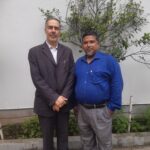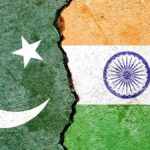Professor Tamanna Sarkar: One of the basic needs of human survival is food. Basically our existence depends on food. Generally, the foods that increase the body’s growth, produce energy, prevent disease and replenish damage, i.e. nourish the body, are called food. Food is all the ingredients that are needed to keep the body healthy and functional by running the body’s functions properly. Food safety is one or more steps taken to protect the health of the consumer by protecting food from various contaminants or hazards such as: physAnything that can contaminate food and is harmful to human health is called a food hazard. Therefore, food safety and nutrition is an important issue for us to build a healthy and strong nation. Food handlers have an important role to play in controlling food-related hazards.
Article 25(1) of the United Nations Universal Declaration of Human Rights in 1948 states that everyone has the right to food. According to Article 15(a) and 18(1) of the Constitution of the People’s Republic of Bangladesh, the basic needs of food must be met for all citizens of the state. Father of the Nation Bangabandhu Sheikh Mujibur Rahman said in a conference organized by Bangladesh National Cooperative Union on June 3, 1972, “Every person in my country will get food, get shelter, get education, have a better life – this is my dream.” In order to realize the dream of the father of the nation, according to the definition adopted at the World Food Summit in 1996, the Government of Bangladesh is committed to ensuring the ability of all citizens to obtain food necessary for active and healthy living at all times. In 2000, consolidation of the country’s food security began with the formulation of a comprehensive food security policy for Bangladesh. The food system in Bangladesh has undergone major changes in the last decade, where rice and wheat are readily available to poor and disadvantaged families, increased food grain production and awareness programs on nutritious safe food.
Bangladesh has already achieved food security. But ensuring safe and nutritious food is now a new challenge. In order to meet this challenge, the Safe Food Act, 2013 has been enacted by the Hon’ble Prime Minister’s unilateral and visionary decision to ensure the right to access to safe food for the protection of life and health of the people. Along with this, Bangladesh Safe Food Authority was established on February 2, 2015 to fulfill the purpose of the Act. The main task of the authority is to ensure the right to safe food by coordinating related activities in food production, import, processing, storage, supply, marketing and sale process through proper practice of scientific methods. The main task of the authority is to ensure the right to safe food by coordinating related activities in food production, import, processing, storage, supply, marketing and sale process through proper practice of scientific methods. The authorities have already formulated several rules and regulations to complete their activities. The safety and nutritional quality of food depends largely on the preparation of food by skilled and careful hands. Food safety is a multidimensional issue. Therefore, everyone at the family level should have an idea about how to keep food safe at every stage of food purchase, preparation, cooking, serving and storage. It is very important for everyone to have a proper understanding of various food hazards and proper knowledge of their control measures.
Every day countless people are getting sick by eating contaminated food and many of them are getting seriously ill. Some remain diseased for life and are passed down through generations. Children, the elderly, pregnant and lactating women and those who are already ill for other reasons are the most affected by food borne diseases. The signs of unsafe food are the final stages of contamination, which can be understood by changing the color, smell, and texture of the food. The reason for food being unsafe is due to chemical and enzyme structural reasons, due to external moisture, light, heat, germs, oxygen etc. infection of microorganisms like bacteria, yeast, mold and virus that help decomposition, eggs and milk etc become unfit for consumption, from which Increases the risk of developing various types of food borne diseases.
Natural and our habitual and careless causes also make food unsafe. Contamination during the production and preparation stages can also make food unsafe. Food is generally unsafe in four ways: Physical – in the presence of dust, dirt, hair, stone particles and debris, etc., Chemical – in the presence of excessive amounts of chemicals hazardous to human health , Biological – bacteria, viruses , resulting from the presence of fungi and other microbes; And allergens – due to the presence of certain substances such as gluten, lactose etc.
Perishable items such as milk, eggs, fish, meat or other frozen foods should be bought last when shopping, otherwise there is a risk of food spoilage. After buying food suitable for keeping in the refrigerator, bring it home quickly and put it in the refrigerator or freezer on an urgent basis. If the packaging says ‘keep in refrigerator’ or ‘keep in freezer’ or ‘keep in cold’, check that the food is properly frozen before buying.
Dos and Don’ts while selecting and buying food: Check production date, expiry date or best before date when buying packaged rice, pulses, flour and flour; Buy by looking at the approved seal of BSTI. Buy packaged milk and milk products from trusted and recognized companies. Yogurt should be made at home if possible. Check the best before date when buying packaged milk and milk products. Purchase by looking at the approved seal of the Standards Institution (BSTI). Do not buy expired milk and dairy products unless the production date, expiry date and best before date are clearly stated on the packaging. Buy locally produced, fresh, seasonal, ripe fruits and vegetables. Buy fresh, green or colorful vegetables. While buying fruits, check whether the fruits are firm, fresh, perfect and clean; Buy juicy fruits as much as possible. Don’t buy overripe, rotten, black-spotted, bruised or bugged fruits and vegetables. Buy clean and perfectly shelled eggs. Do not buy eggs that are discolored and dirty or have dirty shells.
Some techniques to keep food safe are to keep food dry away from moisture. Do not store food in non-food grade plastic containers. Use glass jars or jars or containers if possible; Keeping food storage areas clean with utmost importance, keeping non-food products (eg: washing-up products, washing powder, soap, detergents etc.) at a safe distance from food.
The government has already taken various steps to ensure the food security of the people. The process of capacity building of safe food authorities has already started. There are five important guidelines to keep families and communities healthy by ensuring safe food. These are: keeping food preparation areas clean, keeping raw and cooked food separate, cooking food properly, storing food at safe and appropriate temperatures, and using safe water and raw materials in food preparation. Approximate five lac people died, including more than one lac children under the age of five. What is unsafe, what is dangerous to eat – that is not food. Dishonest people have made food unsafe. So everyone should be aware. No development will be sustainable unless a safe diet of essential nutrients is ensured.







